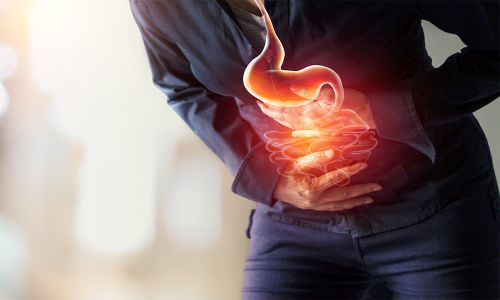It is a surgical method used in the treatment of GERD. Reflux occurs if stomach acid leaks into the esophagus. Burning in the chest area, stomach pain and difficulty in swallowing are felt. What is reflux surgery? When drug treatment does not respond, surgery can be applied.
Who is Reflux Surgery Suitable for?
 It is suitable for patients with gastroesophageal reflux disease (GERD). It is applied when symptoms cannot be controlled despite medication or lifestyle changes. It offers a permanent and effective solution. The decision for surgery is made by evaluating the patient's health status and quality of life. In some patients who use medication for a long time, symptoms cannot be controlled. Surgery is a suitable option for these people who experience constant chest pain, stomach pain and difficulty swallowing. Prolonged reflux can lead to inflammation or ulcers in the esophagus. Surgical treatment may also be preferred in precancerous cases such as Barrett's esophagus. If reflux symptoms negatively affect daily life, surgery may be considered. This method is suitable for patients who have sleep problems or loss of ability to work. Long use of reflux medications may cause side effects. It may also be preferred to avoid osteoporosis, vitamin deficiencies and kidney problems. Reflux complaints may increase in patients with hiatal hernia. In this case, the surgical results are successful. The decision for reflux surgery is made as a result of detailed examination and tests. Joint evaluation by a gastroenterologist and surgeon is important.
It is suitable for patients with gastroesophageal reflux disease (GERD). It is applied when symptoms cannot be controlled despite medication or lifestyle changes. It offers a permanent and effective solution. The decision for surgery is made by evaluating the patient's health status and quality of life. In some patients who use medication for a long time, symptoms cannot be controlled. Surgery is a suitable option for these people who experience constant chest pain, stomach pain and difficulty swallowing. Prolonged reflux can lead to inflammation or ulcers in the esophagus. Surgical treatment may also be preferred in precancerous cases such as Barrett's esophagus. If reflux symptoms negatively affect daily life, surgery may be considered. This method is suitable for patients who have sleep problems or loss of ability to work. Long use of reflux medications may cause side effects. It may also be preferred to avoid osteoporosis, vitamin deficiencies and kidney problems. Reflux complaints may increase in patients with hiatal hernia. In this case, the surgical results are successful. The decision for reflux surgery is made as a result of detailed examination and tests. Joint evaluation by a gastroenterologist and surgeon is important.
What is Reflux Surgery? How To?
 Reflux surgery is a surgical method used in the treatment of GERD. It occurs when stomach acid leaks into the esophagus. Problems such as chest burning, stomach pain and difficulty swallowing are observed. It offers a permanent solution for patients who do not benefit from medication or lifestyle changes. The most commonly applied method is Nissen fundoplication. The upper part of the stomach is wrapped under the esophagus. This procedure strengthens the lower esophageal sphincter. It prevents stomach acid from entering the esophagus. Laparoscopic technique (closed surgery) is used during the procedure. In this way, the surgery is performed by making several small incisions in the abdomen. The surgery is performed under general anesthesia. During this process, the patient is completely anesthetized. He doesn't feel anything. The surgeon makes several small incisions in the abdomen and inserts the laparoscopy device through these incisions. It reaches below the esophagus and above the stomach. The upper part of the stomach is wrapped around the esophagus and stitched. This process prevents the reflux of stomach acid. After the surgery is completed, the incisions are closed with stitches. The surgery usually takes 1-2 hours and the patient is discharged on the same day or the next day. Recovery time is usually 2-3 weeks. After surgery, most patients are permanently free of stomach acid reflux. However, some patients may experience temporary difficulty swallowing or bloating. These symptoms usually improve over time.
Reflux surgery is a surgical method used in the treatment of GERD. It occurs when stomach acid leaks into the esophagus. Problems such as chest burning, stomach pain and difficulty swallowing are observed. It offers a permanent solution for patients who do not benefit from medication or lifestyle changes. The most commonly applied method is Nissen fundoplication. The upper part of the stomach is wrapped under the esophagus. This procedure strengthens the lower esophageal sphincter. It prevents stomach acid from entering the esophagus. Laparoscopic technique (closed surgery) is used during the procedure. In this way, the surgery is performed by making several small incisions in the abdomen. The surgery is performed under general anesthesia. During this process, the patient is completely anesthetized. He doesn't feel anything. The surgeon makes several small incisions in the abdomen and inserts the laparoscopy device through these incisions. It reaches below the esophagus and above the stomach. The upper part of the stomach is wrapped around the esophagus and stitched. This process prevents the reflux of stomach acid. After the surgery is completed, the incisions are closed with stitches. The surgery usually takes 1-2 hours and the patient is discharged on the same day or the next day. Recovery time is usually 2-3 weeks. After surgery, most patients are permanently free of stomach acid reflux. However, some patients may experience temporary difficulty swallowing or bloating. These symptoms usually improve over time.
Recovery Process After Reflux Surgery
 The recovery process after reflux surgery may vary depending on the patient's health and the surgical technique applied. Healing will be faster if done with minimally invasive techniques. Hospital stay is usually 1-2 days. Some patients can be discharged on the same day. Liquid foods are consumed for the first few days. Patients may have sensitivity in the stomach and esophagus area. Nausea, mild pain and bloating may occur. Pain can usually be controlled with mild painkillers. Patients are encouraged to move by taking short walks. In the first weeks, soft and pureed foods should be consumed. Hard and large pieces of food should be avoided. Solid foods can be started after 2-4 weeks. It is important to eat food slowly and chew well. It would be beneficial to stay away from gas-causing foods and acidic drinks. Patients can usually return to their daily routine 2-3 weeks after surgery. Heavy lifting and intense physical activities should be avoided. Post-operative medical check-up should not be neglected. Some patients may experience difficulty swallowing and bloating. It will resolve spontaneously within a few weeks. Rarely, long-lasting complaints may occur; in this case, a doctor should be contacted. After surgery, most patients are permanently relieved of stomach acid leakage. A significant improvement is achieved in the quality of life. What is reflux surgery? It prevents stomach acid from refluxing. To speed up the healing process, it is important to follow the diet and activity instructions recommended by the doctor.
The recovery process after reflux surgery may vary depending on the patient's health and the surgical technique applied. Healing will be faster if done with minimally invasive techniques. Hospital stay is usually 1-2 days. Some patients can be discharged on the same day. Liquid foods are consumed for the first few days. Patients may have sensitivity in the stomach and esophagus area. Nausea, mild pain and bloating may occur. Pain can usually be controlled with mild painkillers. Patients are encouraged to move by taking short walks. In the first weeks, soft and pureed foods should be consumed. Hard and large pieces of food should be avoided. Solid foods can be started after 2-4 weeks. It is important to eat food slowly and chew well. It would be beneficial to stay away from gas-causing foods and acidic drinks. Patients can usually return to their daily routine 2-3 weeks after surgery. Heavy lifting and intense physical activities should be avoided. Post-operative medical check-up should not be neglected. Some patients may experience difficulty swallowing and bloating. It will resolve spontaneously within a few weeks. Rarely, long-lasting complaints may occur; in this case, a doctor should be contacted. After surgery, most patients are permanently relieved of stomach acid leakage. A significant improvement is achieved in the quality of life. What is reflux surgery? It prevents stomach acid from refluxing. To speed up the healing process, it is important to follow the diet and activity instructions recommended by the doctor.


